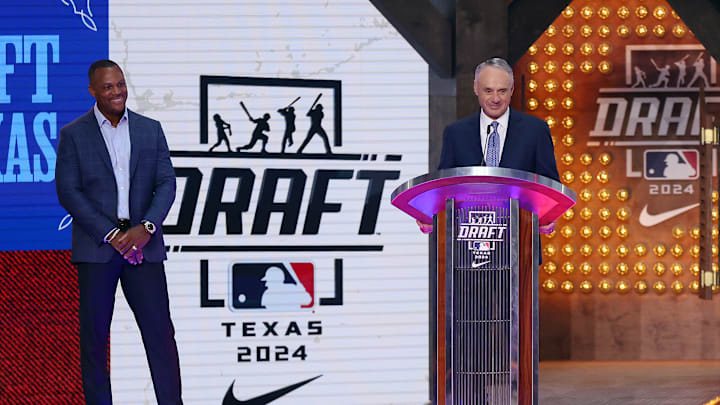Instant replay, wider bases, pitch clock, fewer pick-off attempts and a new extra innings format are just a few changes that we have seen take place in Major League Baseball recently. As a result, games have been shortened drastically and baseball has become more appealing to a multitude of individuals.
MLB commissioner Rob Manfred said on Tuesday that the MLB could potentially be on their way to testing something we have already seen stir up debates in the minor leagues: the automated strike zone. It would only be tested during spring training next year and would not be implemented in the regular season until at least 2026.
Automated strike zone
The minor leagues have actually tested two different types of automated strike zone systems. ABS (automated ball-strike system) is a system that is used on every pitch, then the home plate umpire is relayed what the call should be.
Perhaps the more popular and more likely system allows teams a certain amount of challenges on ball/strike calls they can use if they disagree with the umpire's claim. This would likely be the system Major League Baseball would adopt. However, there is still always the possibility that the automated strike zone only remains in the minors.
"We do have technical issues surrounding the definition of the strike zone that still need to be worked out," Manfred said. He went on to state that the league has been responsive to player feedback and is taking that into account.
Tony Clark, who is the head of the MLB Players Association said that there are players who have no interest in implementing the automated strike zone. Concerns that Clark mentioned include the conistency of the strike zone and what the response would be if Wi-Fi were to go down at the ballpark. These are the type of kinks MLB baseball wants to ensure are taken care of before the system is implemented.
Fans should enjoy managers and players arguing with umpires over balls and strikes while they still can. It's becoming more of a legitimate possibility that human error may no longer be a part of umpiring at the big league level.
